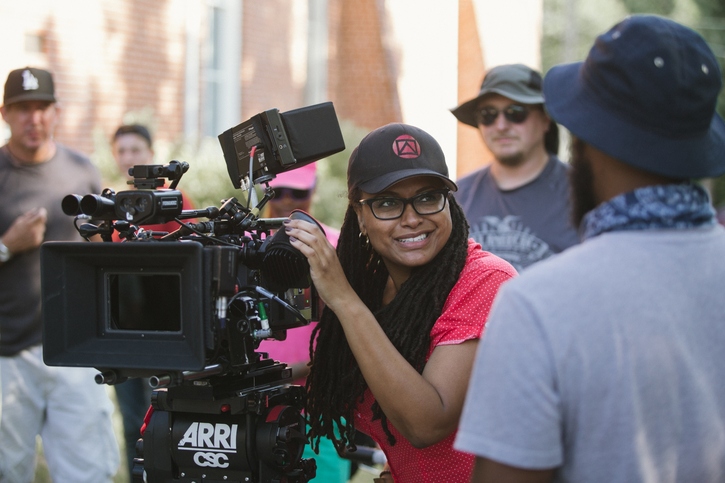Media attention has shifted from Selma to American Sniper, largely because the former movie is struggling at the box office while the latter is breaking records.
Selma and its director Ava DuVernay are still drawing attention, but not really for the movie itself. Opinions about the veracity of Selma have subsided into asides about Oscars snubs and DuVernay’s future plans.
Scott Mendelson’s recent piece for Forbes — Why I’m Glad ‘Selma’ Director’s Next Film Is Not A Marvel Movie — is typical. Mendelson writes about DuVernay’s Hurricane Katrina project with actor and producer David Oyelowo; cites two other pieces on the director; and weighs in on whether or not she should direct a Marvel superhero movie.
In a sense the damage to Selma was done the day The Washington Post printed Joseph Califano’s hatchet job, a complaint echoed and amplified by pundits who weighed in whether or not they actually saw the movie.
Beth Cope’s Politics & Mores piece On ‘Selma’: What’s wrong with Hollywood indeed tackles an interesting financial angle, pointing out that as a Viacom director, Califano could have been protecting Steven Spielberg’s Martin Luther King biopic by attacking a rival movie. Cope notes that Warner Bros., DreamWorks, and Spielberg own the movie rights to King’s speeches, which meant that DuVernay had to write her own speeches in King’s style.
No matter how many experts defend the facts portrayed in Selma, as Julian Zelizer, professor of history and public affairs at Princeton University, did on a recent Leonard Lopate broadcast, critics have succeeded in tainting the movie to the public at large.
The most tone-deaf commentary to date may have come from Cara Buckley, whose “Carpetbagger” column for the New York Times adds a pedantic spin to the awards circus. Her January 21 piece — When Films and Facts Collide in Questions: ‘Selma’ Questions Are Nothing New for Historical Films — not-so-subtly implied that it was DuVernay’s own fault she didn’t receive an Oscar nomination.
After pontificating about other fact-resistant movies like Argo and Lincoln, and after allowing former Wesleyan film professor Jeanine Basinger to warn readers against the “maximum distortion” that is propaganda, Buckley complained that DuVernay and her cast and crew were essentially too uppity:
The filmmakers and cast inserted themselves into present-day events by wearing T-shirts that read “I Can’t Breathe,” evoking the case of Eric Garner, the unarmed black man who died after he was put in a chokehold by a New York police officer. This perhaps conveyed the sense, distasteful to some, that they were capitalizing on the politicization of the film. They also screened “Selma” for schoolchildren, using the film as an educational tool, despite taking artistic license with some of the facts.
We should all be shocked — shocked — that DuVernay has the nerve to express an opinion. Or that schoolchildren are being subjected to a movie that talks about a turning point in the career of one of the greatest figures of the twentieth century.
In a way, Buckley is playing LBJ to DuVernay’s MLK, calming the impatient filmmaker because there are more pressing white-oriented movies that deserve awards. And, to her credit, DuVernay has responded in the best possible way, by tackling the political minefield that Katrina left behind.
Buckley is apparently still smarting over the blunt, simplistic Zero Dark Thirty and its director Kathryn Bigelow: “The issue of torture helped torpedo the awards chances of Zero Dark Thirty. … Her movie, despite receiving five Oscar nominations, ending up winning for best sound editing.”
Buckley still can’t explain how Academy voters ignored Oyelowo’s performance while nominating the trickery that make up Eddie Redmayne’s Stephen Hawking and Benedict Cumberbatch’s Alan Turing.



